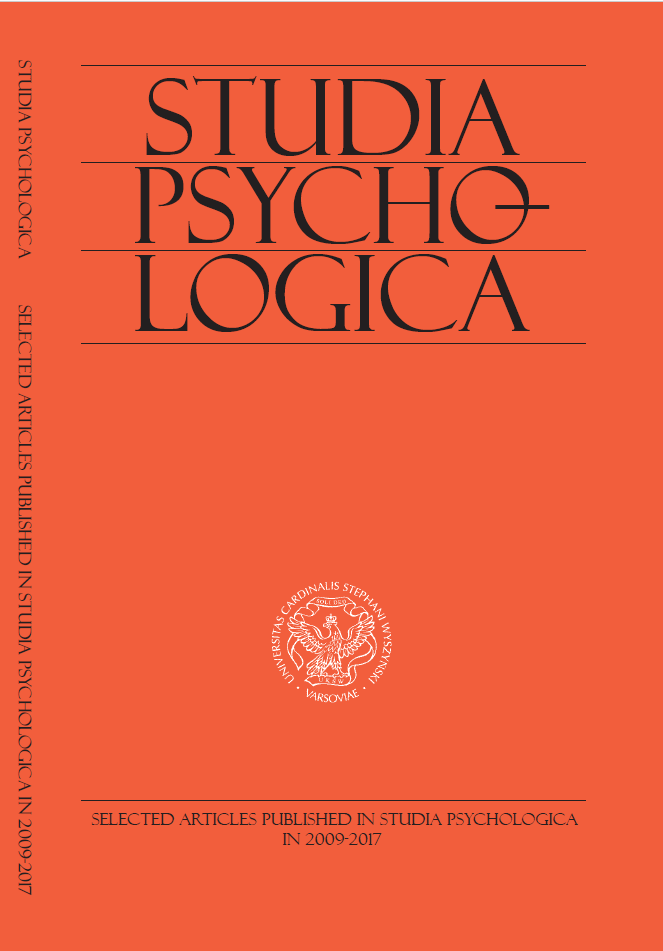The Polish adaptation of Locke’s CSIE questionnaire measuring interpersonal self-efficacy and its personality correlates
The Polish adaptation of Locke’s CSIE questionnaire measuring interpersonal self-efficacy and its personality correlates
Author(s): Krzysztof Stanisławski, Włodzimierz Strus, Jan CieciuchSubject(s): Educational Psychology, Social psychology and group interaction, Developmental Psychology, Clinical psychology
Published by: Wydawnictwo Naukowe Uniwersytetu Kardynała Stefana Wyszyńskiego w Warszawie
Keywords: CSIE questionnaire; interpersonal self-efficacy; circumplex model; interpersonal flexibility; interpersonal rigidity;
Summary/Abstract: The article aims to present the Polish version of Locke’s Circumplex Scales of Interpersonal Efficacy (CSIE) as well as to elucidate the personality correlates of interpersonal circumplex constructs and the scope of the repertoire of interpersonal behaviours. CSIE is based on Wiggins’ interpersonal circumplex model (Wiggins, Trapnell, & Phillips, 1988) and enables the measurement of eight facets of interpersonal self-efficacy: Dominant, Dominant & Distant, Distant, Yielding & Distant, Yielding, Yielding & Friendly, Friendly, Dominant & Friendly. The research was conducted on a sample of N = 306. The reliability of one scale (FG – Yielding and Distant) was low, and the reliabilities of the remaining scales were acceptable. The internal structure and construct validity of the tool were satisfactory. Interpersonal self-efficacy was found to be most strongly associated with the Beta / Plasticity metatrait. This fact was discussed in the context of DeYoung’s (2015) Cybernetic Big Five Theory (CB5T). Two measures were used as indicators of the scope of the interpersonal repertoire: interpersonal flexibility (profile elevation) and interpersonal rigidity (vector length). The flexibility of interpersonal self-efficacy and interpersonal traits were associated with extraversion, agreeableness, emotional stability, intellect, Alpha / Stability, Beta / Plasticity, and General Factor of Personality. In turn, the rigidity of interpersonal values and traits is correlated with extraversion, agreeableness, emotional stability, intellect, Alpha / Stability, Beta / Plasticity, and General Factor of Personality.
Journal: Studia Psychologica: Theoria et praxis.
- Issue Year: 2021
- Issue No: Special
- Page Range: 225-247
- Page Count: 23
- Language: English

